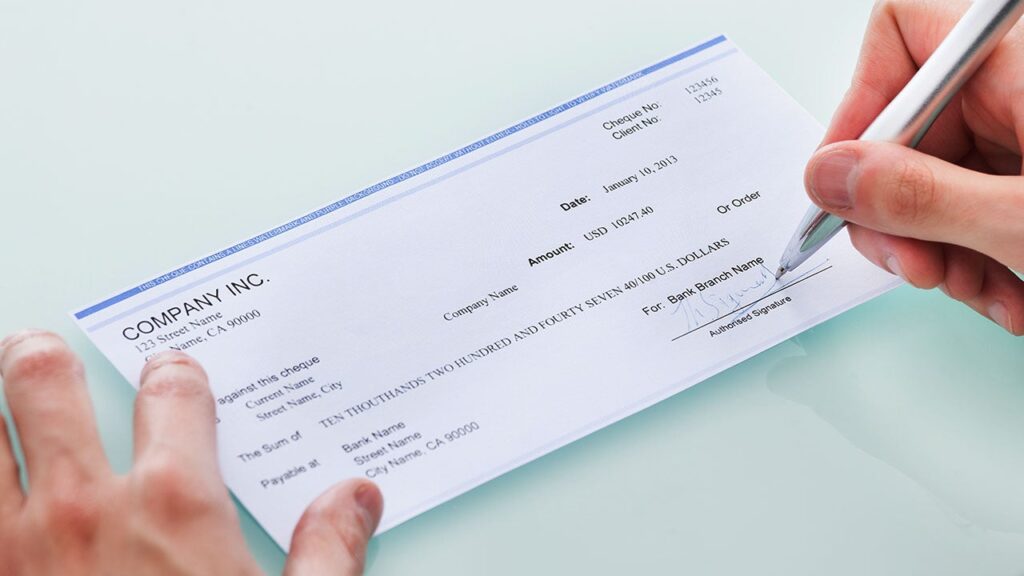Checks have a long and distinguished history and have been in use in one form or another for about as long as the idea of money has been in existence. There is evidence of early checks, known as adesha, being used in the Maurya Empire, between 321 and 185 BCE.
The Romans are thought to have used another early version of checks called prescriptions, and in ancient Persia, banks would issue letters of credit that became known as sakk. These were among the earliest methods of transferring funds between countries without having to carry valuables around.
Modern checks were established by the Bank of England in 1707, when they were the first financial institution to issue pre-printed forms on which their customers could transfer money without the involvement of cash. Even in their earliest form, checks were issued on special ‘check paper’ to prevent fraud, as banks have been trying to improve their security since their very earliest days.
Early versions of checks were exchanged in person by bankers who would meet in a tavern in the city of London at the end of each business day. The clerks would get together and settle the balances in cash, forming the first clearinghouse.
The checking system and associated administrative systems crossed the Atlantic pretty swiftly, with the Bank of New York issuing checks soon after it was established in 1784. These early checks were very similar to the checks that have been in use ever since: they had some details pre-printed on the sheets with spaces for the rest of the information to be completed.
The evolution of checks

Checks today work in much the same way that their earliest counterparts did, but the advancement of technology has made checks a more versatile and practical option over the years. A Scottish bank is thought to have been the first to personalize checks by printing the account holder’s name on them, and in 1830, the Bank of England began to bind checks together to form check books.
Although the history of checks has included periods where their handling was a hugely expensive and impractical operation, the development of new technology has revolutionized almost every aspect of the banking process, including checks. By the 1960s, there were almost 40,000 banks in the United States, with checks becoming a hugely popular mode of payment.
Today’s checks
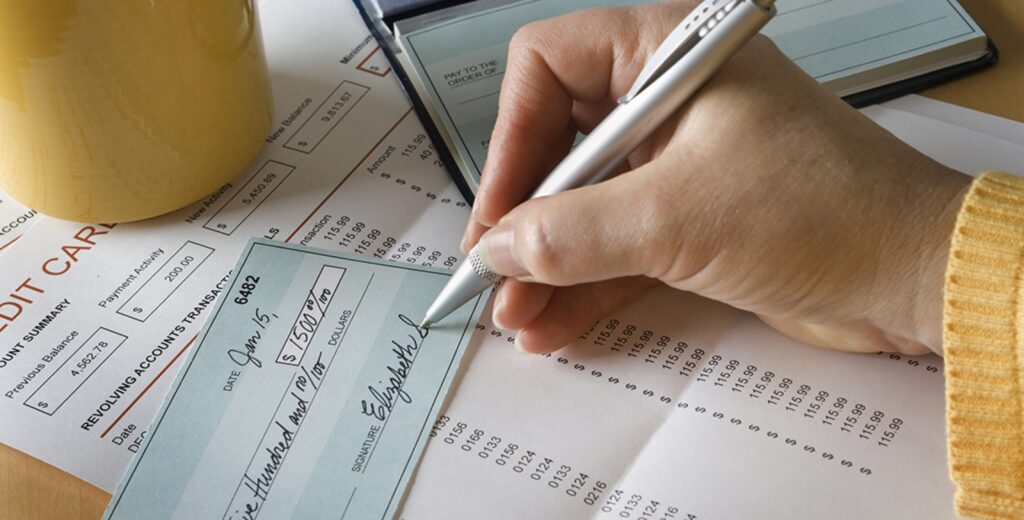
Although the process of issuing and accepting checks is the same as it has been for decades, the technology involved with check issuing and processing has made the use of checks even more secure and convenient. Many of the potential problems with using checks have been mitigated using new features:
Data entry errors – because checks are filled out by individuals, the potential for processing errors has always been relatively high. However, new smart checks from IntuitMarket can be integrated with financial systems to reduce the risk of information being conveyed incorrectly and make banking with checks even easier.
Fraud – with spaces to fill out important elements such as the name of the payee and the amount to be paid, checks have been criticized for their potential to be used fraudulently. Modern checks can be issued with tamper-resistant features, including a security coating that releases a dye if anyone tries to change the details of the payee or amount.
Administration – although checks require more handling than cash, they can also contain useful information about the transaction that makes it easier to track funds and identify individual transactions. Modern voucher checks are an ideal alternative to paper checks that provide maximum security during transactions.
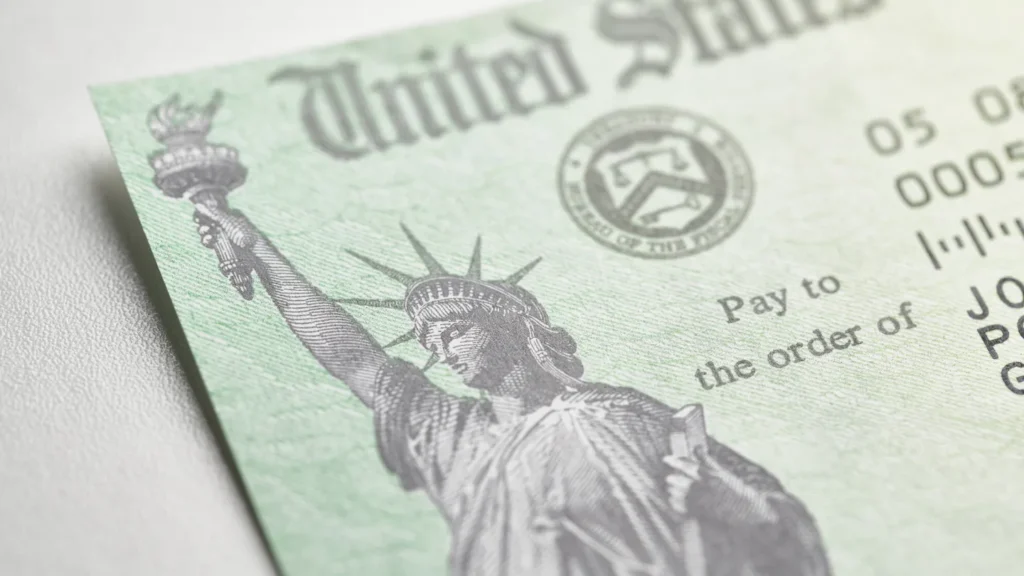
Since it is a digital payment option using checks you don’t have to be concerned about administration problems related to paper checks. It ensures your personal information related to the transactions is kept safe and makes it much easier to track funds and identify individual transactions. You have access to your ledger 24×7 and every transaction is automatically recorded in the ledger.
Check bounce – is a common check challenge faced by banks and financial institutions quite often. Check bounce can happen due to plenty of reasons which includes insufficiency of funds, incorrect information provided on the check like incorrect date, amount and figures mismatch, signature mismatch, overwriting of the check, etc.
Since checks are filled by individuals the chances of these mistakes occur more often. Using smart checks is an efficient way of handling check bounce and saves time for both banks and the check holder. Moreover, payment through checks has become old-fashioned with the availability of a wide range of payment options.
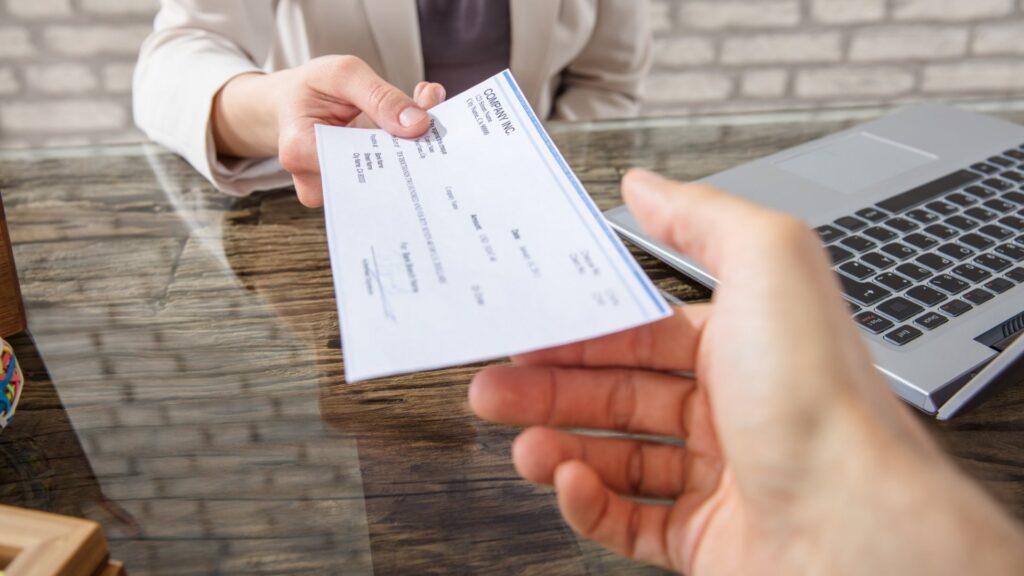
Misplacement of a check – by the bank or a check lost-in-transit due to the bank’s negligence is one of the check challenges faced by financial institutions. There might be times checks might get misplaced by banks due to roundabout banking procedures. As a result of this, the check gets dishonoured and you might have to issue a new check.
To handle this situation with ease, banks will usually send you an alert through SMS provided if your mobile number is linked with your bank account. Also nowadays, banks have a personalized mobile application through which you can send a picture of your check and you don’t have to be concerned about the displacement of checks.
Slow Processing – is a major check challenge that makes it inconvenient to use this as a mode of payment. It may take 1-2 working days to process your transaction. Also, there are plenty of other restrictions like no transactions on holidays, cut-off times, and a few others that can be overwhelming sometimes while making immediate payments.
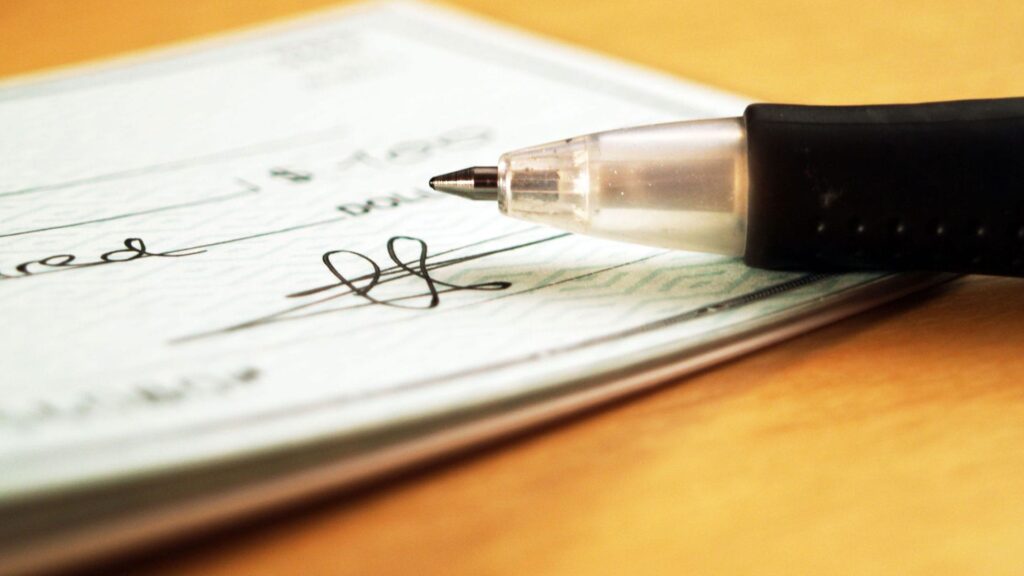
To handle this with ease you can switch over to smart checks which allow you to make unrestricted payments with convenience. It is a digital form of checks that reduces processing time for transactions allowing you to make fast payments during emergencies.
Inefficiency – People often find payment through paper checks inefficient due to the huge operational overhead that makes it inconvenient for the banks to clear and store checks. Also, maintaining ledgers and books reconciliation can be hectic as it involves millions of transactions.
Modern methods of payment through smart checks is an efficient way to keep track of every transaction and with the help of advanced software reduce any chances of errors. Banks can now provide better service and can provide updates of your transactions more accurately. Smart checks enable an automatic record of payroll deductions and invoice payment details into the database while making a transaction. This helps to maintain error-free ledgers and convenient book reconciliation.
With so many different payment methods available, businesses are expanding their payment systems to handle everything from foreign currencies to crypto payments and everything in between. Checks are evolving alongside other payment methods to be a modern solution to money management for those who appreciate the simplicity and ease of a cash-free payment system that eliminates a number of the risks associated with other methods.

